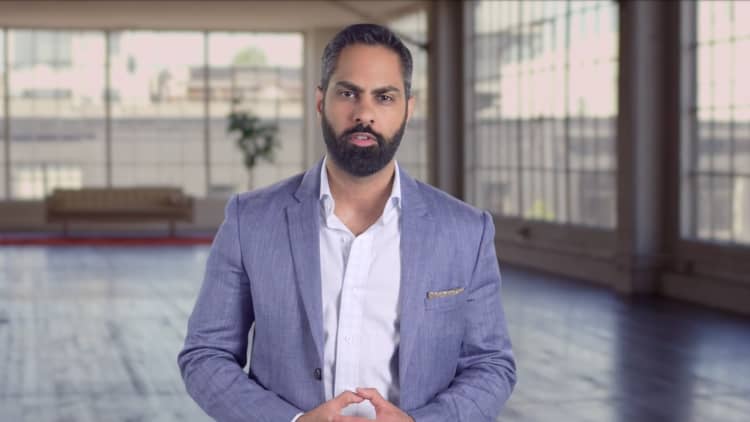As Congress continues to debate about the coronavirus stimulus package, roughly 35% of women who've lost income due to the pandemic say they can't live a month without the federal government's $600 weekly unemployment boost that expires on July 31, according to a new study released by The Ascent, a personal finance hub under the investing company The Motley Fool.
In its survey of nearly 2,000 Americans who have experienced some level of income loss due to the pandemic, The Ascent found that women are being hit the hardest financially by Covid-19. Among its survey participants, 28% of women said they have lost all of their income as a result of the pandemic, compared to 20% of men. Additionally, 49% of women said it would take them at least six months to get back to their pre-pandemic financial state, compared to 44% of men.
While the pandemic is negatively impacting millions of Americans, the disproportionate effect it's having on women can easily be linked to women being over-represented in low-wage jobs and women feeling the brunt of coronavirus job losses.
Between February and April, women lost more than 12.1 million jobs as a result of the pandemic and only a third of those jobs returned in May and June, according to data from the National Women's Law Center. When comparing the unemployment rate for women versus men, women ages 20 and over have an unemployment rate of 11.2% compared to men over 20 with an unemployment rate of 10.1%. In June, according to the NWLC, the unemployment rate for women was 1.3 times higher than the highest unemployment rate women faced during the Great Recession and the subsequent recovery years.
"Since the pandemic has hit, women have lost the majority of the jobs that the economy has shed, and that is still the case even after the gains we saw [in June]," Emily Martin, vice president for education and workplace justice at NWLC told CNBC Make It earlier this month.
To help individuals cope with the pandemic's impact, Senate Majority Leader Mitch McConnell (R-Ky.) announced the Health, Economic Assistance, Liability Protection and Schools (HEALS Act) Monday night. The $1 trillion bill includes an extra $200 per week in unemployment insurance through September, a decrease from the $600 weekly unemployment insurance that individuals received in the earlier CARES Act. The bill also proposes a second round of $1,200 stimulus checks for individuals earning up to $75,000 per year in 2019 and a $2,400 check for couples earning $150,000. Similar to the first round of checks, these payments will be reduced by $5 for every $100 in income, phasing out completely at $99,000 for individuals and $198,000 for couples.
Democrats and Republicans are expected to continue negotiations on the bill into August, with experts saying that once the bill is passed it could take weeks, or maybe even months, before Americans receive their check.
Matt Frankel, Certified Financial Planner at The Ascent says that with millions of Americans being financially impacted by the pandemic it's important for individuals to know of the smart money decisions they can implement now to make ends meet.
He tells CNBC Make It that if you're fearful of not being able to pay your bills without the $600 unemployment boost then one of the first things you should do is call your mortgage lender, auto lender, credit card company and any other lender you owe money to to see if they will let you freeze your payments for a certain amount of time.
"While it's not legally required," he says, "most auto lenders, credit card lenders and pretty much all other lenders are being very accommodating to people who have experienced income disruption because it's really in nobody's best interest to have to foreclose or collect on a loan."
In addition to calling your lender, Frankel says if you need additional help you should look into getting an interest-free credit card to use for necessary payments. And, if you're a self-employed worker, he says you should look into government assistance programs provided by the Small Business Administration.
As an absolute last resort, Frankel says you can turn to your retirement account for financial assistance. While he says pulling from your retirement is "obviously better than losing your car or not being able to buy groceries," he still believes that you should "exhaust the other options first."
CNBC Make It is NOW STREAMING on Peacock. Find our original programming in the Channels section.
Don't miss: Senate HEALS Act includes another $1,200 stimulus check—here's who would qualify



